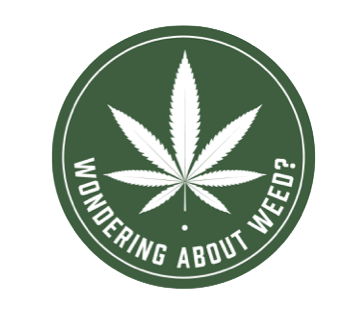thc & cbd: What’s The Difference?
THC and CBD are the shorthand names of the best-known cannabinoids found in weed. THC is short for Δ9-tetrahydrocannabinol, and CBD is short for cannabidiol. These two molecules are by weight the large bulk of all cannabinoids found in cannabis.
THC and CBD are the shorthand names of the best-known cannabinoids found in weed. THC is short for Δ9-tetrahydrocannabinol, and CBD is short for cannabidiol. These two molecules are by weight the large bulk of all cannabinoids found in cannabis.
Although THC and CBD are well known, they are but two of the many different cannabinoids found in your weed—and in your body. Cannabinoids are a large group of natural biological molecules. When cannabinoids are made by your body, they are called endocannabinoids. (That's right! Your body is making cannabinoids right now—and has been and will be your entire life.) When a plant makes cannabinoids, we call them phytocannabinoids—so, when most people discuss cannabinoids, they are referring specifically to phytocannabinoids. The term cannabinoid was named after cannabis, as this plant makes a huge abundance of these special molecules.
Cannabinoids work on specific receptors in the body and brain. Our bodies have a large network of receptors (the CB1 and CB2 pathways) that respond to cannabinoids. Cannabinoids work gently, offering support to the body’s natural health maintenance. Weed makes hundreds of cannabinoids, and most are found in tiny amounts. But THC and CBD are found in large amounts in the resin of the cannabis plant, so we experience their impact strongly—and thus they get a lot of attention.
The High: THC is the most famous cannabinoid, and is what makes many types of weed so potently euphoric and intoxicating—and fun, or giggly, scary, or sleepy for many. While there are a couple different forms of THC, most of it is the Δ9 variety. THC has a wide array of impacts on mood and mental state. At the right dose, you can expect to feel euphoric, mentally fuzzy, happy, mellow, like time has stopped or sped up, forgetful, and in a lighter mood after imbibing. THC is highly sought after by recreational users but also has important health impacts on inflammation and pain, and works synergistically with other cannabinoids to provide strong and gentle help for those suffering with pain, nausea, and inflammation.
The Calm: CBD is the second most famous cannabinoid. You've likely seen products in your local stores that contain CBD. But if cannabis is federally illegal, why are CBD products on the market in my corner shop? CBD can be isolated from varieties of cannabis with low enough levels of THC to qualify as hemp, so it's legal to put in just about everything as a supplement. CBD is generally a well tolerated and effective pain reliever, anti-inflammatory, non-intoxicating, anti-anxiety, anti-microbial, and immune supporting. When CBD is consumed along with THC it impacts the way the THC works, often calming the anxiety that can come along with a too-strong dose of THC.
If you are using whole flower cannabis, you get an assortment of cannabinoids that the cannabis plant naturally makes. The assortment of these cannabinoids is determined by a combination of the plant’s strain and growth conditions. You can choose strains to grow and use based on their usual cannabinoid levels. However, if you are consuming cannabis in the form of a vape oil, tincture, tablet, or edible you’re likely consuming a human-made recipe that includes specific cannabinoids and other active ingredients such as terpenes. Together, the cannabinoids and terpenes work synergistically to create the Entourage Effect.
Our workshops offer a thorough explanation of all the major cannabinoids in cannabis products, including THC and CBD. You will leave our workshops feeling well informed and excited to grow and purchase cannabis products that will elevate your health and mood.

